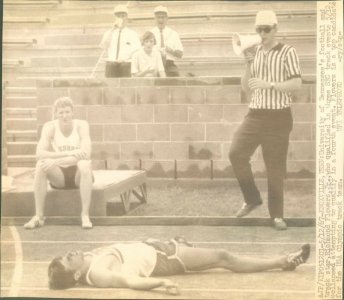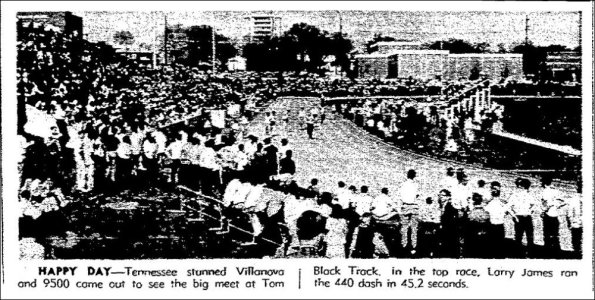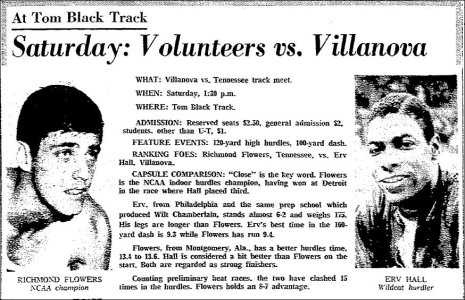Correct. I've been working closely with Richmond to research his Tennessee years for a while.
In 1968, he did have the world’s fastest time. On April 19th in Baton Rouge, Richmond ran a world’s best 13.3 120 HH's into a 3.4 mph wind at the all-black Pelican Relays/Southern U. Adjusted for wind and conditions, that was likely a 12.9 something in normal race conditions. 13.1 was the WR then. It was his first win over rival Wille Davenport after 13 losses in a row.
Richmond had two issues in 1968... American alone had 6 or 7 elite High Hurdlers; Richmond being one.... Not counting 3 or 4 more worldwide... no margin for error (injury) at that level.
Second, at 6'1", he was one of the shortest HH in the elite dozen or so. That (hitting hurdles) didn’t matter in college 120 meets but was death in a race with 8 of the best in the world.
Because of his height, the great Spec Townes of Georgia had advised Richmond to run the 400 Hurdles to go to Mexico City. There were few elite 400 hurdlers in the world that year. A side here, Richmond first ran the 400 Hurdles in the 1967 SEC Championships and was on a WR pace his first time when he ran through the 11th hurdle out of fatigue.
After that experience, he only trained for the 120s. thereafter.





